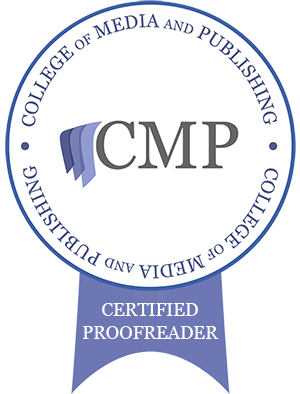
Verb Tenses – Conjugation
How to understand verb tenses and verb conjugation. I know, I know. The word ‘conjugation’ brings up memories from school, especially if you ever studied a language other than your native language. I remember memorising verb conjugations in French in high school. I don’t remember any of the verb conjugations from French, however. Clearly that was a waste of time, but the thing is, I didn’t really like French. I didn’t have much choice in languages, as the last Latin teacher retired before I chose my subjects. Latin would have been much more useful for my career aspirations as a vet, since a lot of medical terminology and species names are derived from Latin and Greek.
The thing is, I don’t really remember being formally taught how to conjugate English verbs in the same fashion. That’s something that I learned organically through learning to read and write, rather than memorising lists. That’s why it stays with me, perhaps. Or maybe it’s just because English is my native language so I understand it intuitively, and incorrect grammar just sounds ‘off’ to me.
I’ve been learning Japanese, as a hobby really, and I definitely feel I’m better at understanding verb conjugation in that language than I ever have in French. It might be because Japanese is such a different language, the grammar rules are vastly different from English. In Japanese, the verb always goes at the end of a sentence. With English it usually follows the subject. Spoken Japanese verbs have different conjugations for politeness levels, while in English, that’s not really a thing.
Understanding Verbs and Sentence Structure
So, on to the meat and bones of this article. Understanding verb tenses and how to conjugate verbs correctly will make a massive difference to your writing. This applies to all kinds of writing, whether it is an academic paper, a story or a blog article like this one. Why? Because of things like subject-verb agreement and syntax, the order of words in a sentence.
A basic sentence consists of a subject and what is said about the subject, sometimes referred to as the ‘predicate’. This is where the verb will be. Usually there will be an object as well, which is receiving the verb from the subject. Some verbs don’t need a direct object to make sense, these are known as ‘intransitive’ verbs. Verbs that do require a direct object are called ‘transitive’ verbs.
So let’s look at some examples. To make things clear, the subject will be underlined, the verb will be in bold and the direct object will be in italics.
- The cat licked its paw.
- Licked its paw.
- The cat licked.
So in the list above, it’s clear that only the first sentence is complete. It makes sense. We know that the subject (the cat) licked (verb) its paw (object). The second sentence is lacking a subject, so we don’t know what performed the verb. The third sentence is lacking a direct object, so we don’t know what the cat licked. Licked is a transitive verb, we need a subject and an object with it for it to have any meaning.
This might seem really simple, but it’s important. Writing is about communicating, and if there is anything unclear, then it’s not communicating properly. When you use more complex sentences than these examples, it’s even more important.
Verb Tenses
Verb tenses are an important part of English language. At a basic level, you can split them into past, present and future. That obviously tells us when the action of the verb occurs. You also split the verb forms by first, second or third person, and within these there are singular and plural forms. English has regular and irregular verbs, like most other languages.
What’s the difference? Regular verbs follow a consistent pattern when conjugating the different forms of a verb, essentially the word is changed the same way for each form. Irregular verbs do not follow this pattern and often are changed significantly or even entirely. English has a lot of irregular verbs, while Japanese (my go to as it’s a language I’m studying) only has two irregular verbs: the verbs for ‘to do’ and ‘to come’.
For regular verbs, you take the base form (or stem) and use it as the present tense. To change the verb into other forms, you add a suffix. For example in the past tense you will usually add -ed or -d (if the word ends in an e). For some tenses you may need additional helper verbs to make it clear. The best way to show you is a list. So let’s take the verb ‘play’. The base form, known as the infinitive, is the word ‘to’ and the base form of the verb.
Regular Verb Conjugation: To Play
- Infinitive: to play
- First person singular: I play
- First person plural: We play
- Second person singular: You play
- Second person plural: You play
- Third person singular: He/She/It plays
- Third person plural: They* play
- Simple present: I play
- Simple past: I played
- Simple future: I will play
- Present continuous: I am playing
- Past continuous: I was playing
- Future continuous: I will be playing
- Present perfect: I have played
- Past Perfect: I had played
- Future perfect: I will have played
- Present perfect continuous: I have been playing
- Past perfect continuous: I had been playing
- Future perfect continuous: I will have been playing
As you can see, some of these require linking words or helping verbs to make sense. This is the pattern used for regular verbs. English does not have imperfect verb conjugation. Instead, you should add the phrase ‘used to’ for something that occurred in the past but no longer occurs in the past or present. “I used to play video games when I was younger,” implies that you did play in the past but you stopped in the more recent past and no longer do it now.
* Note: as discussed previously, ‘they’ is also a singular pronoun for people of unknown or unspecified gender. However, you would still use the third person plural conjugation when using ‘they’ as a singular pronoun. For more on this, see this post on pronouns.
Conclusion
I’ll leave it here for today. The subject of verb conjugation can get quite tedious, so I won’t drag this out too long for today. If you do want to read more on the subject, I highly recommend the Blue Book of Grammar. Check out their blog post on verbs here. In the next part of this series on Wednesday, I’ll cover irregular verbs in more detail and talk about reflexive verbs, linking verbs and helping verbs. On Friday I’ll cover the concept of subject-verb agreement, split infinitives and implied subjects.
Don’t forget, follow me on social media for more content and subscribe below to get an email whenever a new post goes up on the blog! See you next time!




Leave a Reply